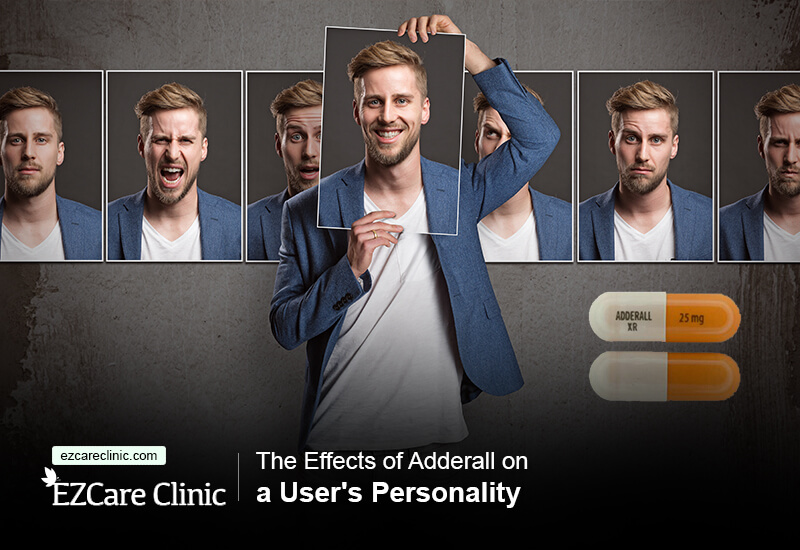Their inclusion does not guarantee they will be prescribed to any individual, as treatment decisions are ultimately at the discretion of healthcare providers. Healthcare providers may prescribe other medications or recommend non-pharmacological treatment based on the patient’s unique health circumstances and needs. Read more
Highlights
- Gabapentin is an anticonvulsant that is primarily used to treat seizures, but it can be used off-label as a sleep aid.
- Gabapentin can reduce nighttime awakenings and promote more slow-wave sleep.
- There is a risk of misuse and dependence on gabapentin, which leads to potential concerns regarding its long-term use.
Sleepless nights can drain your days, so it’s no surprise that insomnia is one of the most common reasons why adults seek medical advice. Different treatments are available for this condition, including medications, such as gabapentin.
An Overview of Gabapentin
Gabapentin is a gamma-aminobutyric acid (GABA) analog that is primarily used as an anticonvulsant — it helps control seizures in epileptic people by reducing the excitability of their nerve cells.
This anticonvulsant, which may go by the brand names of Neurontin, Gralise, or Horizant, is also used to ease certain kinds of neuropathic pain (e.g. caused by shingles) and reduce the effect of restless legs syndrome. It is available as a liquid, capsule, or tablet.
Additionally, gabapentin treats these conditions off-label:
- Generalized anxiety disorder
- Panic disorder
- Social anxiety disorder
- Restless leg syndrome
The Food and Drug Administration (FDA) has not approved gabapentin specifically to treat insomnia. When it comes to taking gabapentin (Neurontin) for sleep, it is an “off-label” use, which means that it can be helpful for sleep issues, but not enough to be FDA-approved for it. Gabapentin is rarely prescribed for insomnia; it is neither a first, nor second-line sleep aid medication. In the majority of cases, your healthcare provider will recommend alternative treatment.
How Does Gabapentin Work?
While its mechanism of action in the central nervous system is not entirely clear, experts believe that gabapentin may cause the brain cells to produce more
For those with nerve pain, especially from shingles, gabapentin is believed to alter how pain signals are sent throughout the body and brain, reducing sensitivity. Finally, those who are recommended to take gabapentin for insomnia may experience calming effects — let’s explore the mechanisms behind that in more detail.
Does Gabapentin Help You Sleep?
Gabapentin may be able to help you sleep through two modalities:
- It has an anti-anxiety and calming effect, which helps to promote sleep onset, address sleep disorders, and potentially impact sleep efficiency.
- It improves sleep quality by decreasing spontaneous arousal (i.e., waking up in the middle of the night) and
enhancing slow-wave, deep sleep[4] .
So, whether you struggle to fall or stay asleep, or wake up even after 7 hours of sleep still feeling tired, gabapentin may be able to help.
However, it’s important to note that studies on the effects of gabapentin used for sleep in those with primary insomnia (i.e., difficulty sleeping that isn’t linked to other health conditions) are limited, so experts cannot yet say with certainty if the benefits outweigh the risks. If you’re struggling with sleep issues, MEDvidi provides professional online insomnia treatment, offering personalized evaluations and tailored guidance to address your needs. Your doctor can help to determine, based on your case, if it’s a good choice to take gabapentin for primary insomnia.

Can Gabapentin Cause Insomnia?
At the opposite end of the spectrum, some people may experience insomnia while taking gabapentin. While the medication typically produces a calming effect, some people may feel drowsiness while being unable to calm their minds, leading to restless nights.
It’s important to note that some instances of insomnia may be from a developed tolerance to the medication, so you should always talk to your healthcare provider before changing the dosage. Additionally, if you stop gabapentin suddenly, symptoms of withdrawal can include rebound insomnia.
Gabapentin Dosages for Sleep
The
Given the risk of misuse associated with gabapentin, it’s common to start on the lowest possible dose. Then, based on your response to treatment and medical history, your healthcare provider may gradually increase the dosage. However, ongoing monitoring remains necessary, and there is also a chance that you’ll be recommended a more commonly used treatment for insomnia instead of gabapentin.
When to Take Gabapentin for Sleep?
If you’re taking gabapentin in order to improve your sleep, it is best to take it just before your usual bedtime, as this gives the medication time to calm your mind. However, sleeping challenges are an off-label use of this medication, so there are no standard instructions on when to take it.
One
How Long Does Gabapentin Take to Work for Sleep?
Gabapentin has a half-life of 5-7 hours, which means that it takes your body 5 to 7 hours to remove half the medication. How long it takes the effects to kick in, though, can vary from person to person. It may take several days until you see the full impact, while others have reported improvements in sleep after
However, since the medication can cause drowsiness, you should only take it when you have 7-8 hours to sleep.
Side Effects and Risks of Using Neurontin for Sleep
Some of the most common side effects of gabapentin include blurred vision, dizziness, dry mouth, and fluid buildup. Since gabapentin is typically taken before bed when taken for insomnia, dizziness is less likely to be a problem. Still, it’s best to avoid activities that require attention and alertness, such as driving, when you first start taking gabapentin — wait until you know how the medication affects you.
There are also some more serious risks associated with this medicine. Most importantly, gabapentin is classified as a controlled substance in some states because it comes with a risk of misuse and dependence.
Other serious side effects, although rare, include:
- Difficulty breathing when taken with other medications that slow the brain, such as benzodiazepines or opioids.
- Severe allergic reactions.
- Suicidal thoughts and behavior.
- Withdrawal symptoms if you stop taking gabapentin abruptly.
If you’re experiencing suicidal or self-harming thoughts and require immediate assistance, contact a crisis hotline, such as 911, 988 suicide & crisis lifeline (toll-free), or Samaritans (116-123 or via chat).
Long-Term Use of Gabapentin for Sleep
More evidence-based research is needed to conclude whether gabapentin is safe for long-term use as a sleep medication.
The greatest concern with gabapentin’s extended use is its risk of dependence and then withdrawal, which can negatively impact sleep and have the potential for abuse. As such, it’s always recommended to use gabapentin for the shortest possible duration and at the lowest possible dose that still produces the results you need. Both criteria are determined by a healthcare provider.
Gabapentin vs. Other Sleep Aids
There are alternative sleep aids, including OTC (over-the-counter) and prescription options, that don’t carry the same risk of dependence, which may make them a better choice.
While the American Academy of Sleep Medicine does not recommend OTC sleep aids for the treatment of insomnia, your healthcare provider may suggest trying one before a prescription medication. The two most common options are Benadryl (diphenhydramine) and melatonin.
As for prescription medications, there are many options for treating insomnia, each with its own set of benefits, risks, and drug interactions. Based on your case, one may be a better choice than another—your healthcare provider can help you find the most suitable one.
Prescription sleep aids include:

Who Can Consider Gabapentin for Sleep?
While gabapentin is not marketed as a sleep aid, its effects may nevertheless help you at bedtime, helping you to calm down and have fewer awakenings during the night. If you struggle to fall asleep, discuss your challenges with your healthcare provider, and they can help you determine if gabapentin, another medication, or lifestyle interventions are a good treatment option.
However, some people should not take this medication because they are at a greater risk of experiencing side effects. These groups include those who are older than 65, have kidney problems, or take other medications causing drowsiness. Additionally, given the
Bottom Line
Gabapentin can be helpful for those experiencing interrupted sleep and anxiety, but it is not the first-line option. If you’re having trouble sleeping, your first step should be to make an appointment with your healthcare provider. They will assess your situation and prescribe gabapentin or another medication, if it seems to be the right treatment for you, or they may refer you to a polysomnographic technician to evaluate your sleep and ensure that you aren’t experiencing any other sleep disturbances, such as sleep apnea.
Given the risk of dependence on gabapentin, always consult with your doctor to find the best sleep aid for your particular case. Explore personalized care from the comfort of your home — sign up for MEDvidi today and take the first step toward better sleep and well-being.













